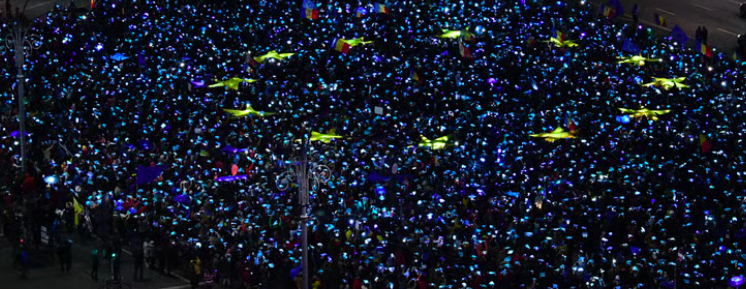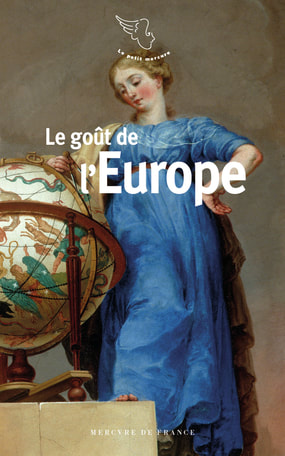|
An idea is haunting Europe. In the UK, it is invoked by both Brexit opponents and supporters. In France, it is the main demand of the Yellow Vest movement. In Eastern Europe, it crystallises confrontations between governments and civil societies. Everywhere new parties, citizen movements and associations appear with the intention to defend it and work to improve it. Dating back to ancient times, it is forever young, never to be taken for granted, always in struggle. It is democracy. Increasingly, citizens are no longer willing to have so little influence on the decisions made on their behalf. They often see the officials who are supposed to be their spokespersons as obstacles that keep them away from power. At the European level, this feeling reaches new heights. Citizens do elect the governments represented in the EU Council and the parties represented in the European Parliament, but the opaque compromises and coalitions formed in Brussels are completely beyond citizens’ control, making EU decisions seem disconnected, even arbitrary.
Some believe the solution is to return to the nation as the only possible framework for genuine democratic power, exiting the EU or at least returning power to the national level. But isn’t this option a renunciation, a betrayal of democratic ambition? Let’s think about it. Did the revolutionaries of 1789, confronted with a French state based entirely on the idea of an absolute monarchy of divine right, choose to withdraw into local communities? Did they say “Let’s dissolve tyrannical France to better restore power to our municipal or provincial representative institutions”? No. As undemocratic as the French state of the time was, the revolutionaries chose not to destroy it but to transform it. To revolutionise it. Yes, you might say, but in 1789 the French were already a people with a widely shared culture and language. The conditions necessary for a self-aware popular will were in place before democracy came into being. Since these conditions do not exist at the European level, there can be no European democracy. This reasoning is logical, but beware of retrospective illusions! The link between the nation and democracy did not precede the construction of national democracies; it is the product of national revolutions. Many 18th-century Europeans were convinced that a great nation could not be democratic and could only preserve its unity through the authority of a monarch. For them, the criterion for popular power was not language but physical proximity – living in the same place, meeting regularly. All the great political thinkers had been saying this for centuries. For Aristotle, the criteria for a viable political community were that citizens could meet in one place and know each other personally, so that they could elect officials based on merit. This could only take place in a small town. More than two millennia later, Rousseau reaffirmed the same criteria, and when he praised the merits of the Republic of Geneva, his homeland, he pointed out its small size and the citizens’ knowledge of one another. What characterises a nation? Exactly the opposite. According to a classic definition, a nation is an “imagined” community that binds people who “will never know most of their fellow-members, meet them, or even hear of them”. In short, before being considered as the framework of democracy par excellence, the nation was considered incompatible by nature with the formation of popular will because it was too big and too abstract. The French Revolution was a bombshell precisely because it established democracy where it was least expected – in France, the largest nation in Europe. If it has been possible, against all odds, to bring the democratic revolution to European nations, why should it not be possible to bring it to Europe? If citizens meeting in one place is no longer an essential condition for democracy, why should the same not be true of a shared language? At a time when the world is increasingly dominated by multicultural and multilingual continent-sized states such as China, India or even the US and Russia – which base their identity less on a national culture than on a project of civilisation – why should democratic struggles be left behind? Is there not a risk that democracy will condemn itself to weakness, becoming again what it was in the 17th century, a regime adapted to small states but not the great modern powers? Alongside the deepening of democracy, through referendum or sortition, the enlargement of traditional democratic communities is another great contemporary struggle. Those who believe democracy must remain confined to a narrow national framework are the objective allies of the new 21st-century monarchs, Xi or Putin, who base their legitimacy on the idea that only an all-powerful leader can preside over the destiny of a great people. The common objective is to prevent democracy from growing. Can the EU experience its own democratic revolution? The answer to this question is a fight. It is a political fight, first of all, to mobilise European citizens around democratic demands such as the direct election of the European Commission, the establishment of a European referendum on popular initiative or the creation of a European Citizens’ Assembly drawn by lot. But it is also an emotional, memory-based battle. To become a collective actor, the European people must acquire an awareness of their shared identity, discovering, under the veils of national narratives, what makes Europe a community of destiny. An example is the 732 Battle of Tours between Charles Martel’s Franks and Abd al-Rahman’s Umayyad troops. This event was dramatised by the French extreme right to promote a Christian, Islamophobic and generally anti-immigration national identity. Yet historians have long pointed out that, far from the religious war it was painted to be, the episode was closer to an attempted raid. For Abd al-Rahman, the main objective was plundering. Charles Martel hoped to extend his influence over the Duchy of Aquitaine, previously at war against his authority. Behind modern reconstructions remains the perception of 8th-century witnesses. The most detailed account of the battle comes from the Mozarabic Chronicles, written in Spain beginning in 754. When referring to the victorious army, the author used an unexpected term – almost a neologism – a Latin word that can nevertheless be understood without a long classical education: Europenses. The European people are a sleeping giant. Let’s awaken them! Comments are closed.
|
My name is Pierre Haroche and I am a specialist in European integration and European security.
In this blog I present my thoughts on EU democracy, defence and identity. If you are interested in my proposals, do not hesitate to get in touch! |
Proudly powered by Weebly




